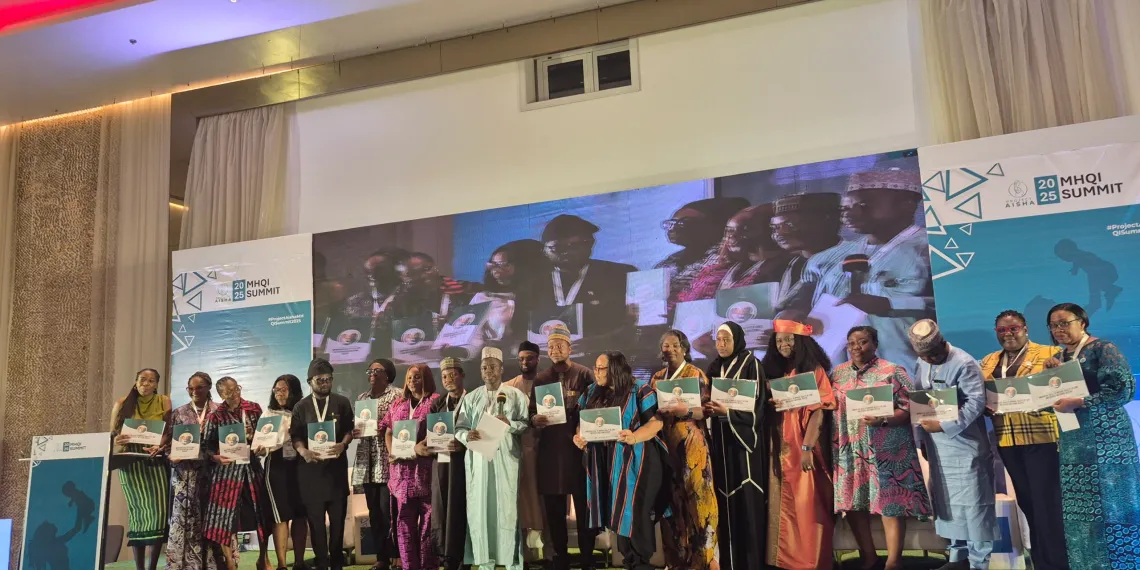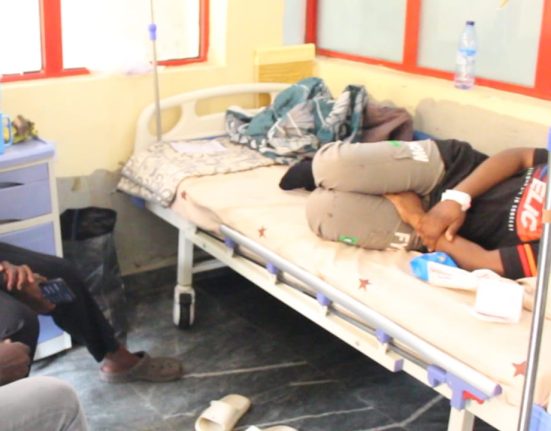In a groundbreaking development for Nigeria’s healthcare landscape, the Health Strategy and Delivery Foundation (HSDF) has announced a significant 25 per cent reduction in maternal mortality rates across selected local government areas in Lagos and Kaduna states. This achievement comes under the umbrella of Project Aisha, a maternal health initiative launched in 2022 with the vision of ensuring that every mother remains “alive and well” during and after childbirth.
Funded by the global health initiative, MSD for Mothers, and implemented by a consortium of four organisations, HSDF, Ingress Health Partners, mDoc Healthcare, and the Institute for Healthcare Improvement—Project Aisha has been operational in four Lagos LGAs, namely Ifako-Ijaiye, Ibeju-Lekki, Agege, and Epe, as well as in Zaria LGA of Kaduna State. Since its inception, the project has been laser-focused on closing quality gaps in maternal healthcare delivery.
The landmark results were made public during the 2025 Maternal Healthcare Quality Improvement Summit, held recently in Lagos under the theme, “Mothers Matter! What Does It Take to Stop Maternal Deaths?” Nigeria, according to the National Demographic and Health Survey of 2018, still records 512 maternal deaths per 100,000 live births, with just 56.8 per cent of women accessing four or more antenatal care visits, and a mere 39 per cent delivering in health facilities.
Dr Layi Olatawura, Director of Project Aisha and Managing Principal of HSDF’s Nigeria operations, highlighted the project’s people-centered and technology-driven approach. According to him, since August 2022, over 46,000 women have been empowered to make informed decisions regarding their maternal health, while more than 700 healthcare workers have been trained to provide dignified and high-quality care. Over 110,000 women have directly benefited from maternal health services through this intervention.
Dr Olasunmbo Makinde, Senior Programme Manager at HSDF and Project Aisha Manager, disclosed that the project’s approach of integrating women’s voices into the design and implementation of maternal care has been crucial in reducing facility-based maternal deaths by 25 per cent. She noted the initiative’s success across the project’s focus areas was largely due to community-driven solutions that involved both women and influential community figures, such as traditional birth attendants and elders, in shaping healthcare decisions.
She elaborated that cultural norms often place the power of maternal health decisions not only in the hands of women but also with their partners, in-laws, and even fathers-in-law. Recognising this dynamic, Project Aisha equipped community members, including what she described as “maternal health influencers,” to act as bridges between modern healthcare services and traditional practices.
The initiative also acknowledged the role of traditional birth attendants (TBAs), particularly in rural areas where access to formal health facilities is limited. Dr Makinde said that Project Aisha trained these TBAs to recognise maternal danger signs and to collaborate with health institutions to improve outcomes, ensuring that both traditional and formal health providers worked in synergy rather than in opposition.
Technology has also played a central role in Project Aisha’s impact. The use of NaviHealth.ai, a digital platform for capturing and analysing women’s experiences of maternal healthcare, has allowed real-time feedback on the quality, timeliness, and patient-centeredness of services received. Over 3,400 maternal care experiences have been documented on the platform, enabling data-driven improvements across the participating facilities.
Among the measurable impacts, the project reported a 65 per cent increase in antenatal care attendance, an 82 per cent boost in the quality of antenatal services, and a drastic reduction in the time it takes to conduct emergency caesarean sections, from 168 minutes to just 76 minutes. Postpartum haemorrhage, preeclampsia, and obstructed labour—leading causes of maternal mortality, were significantly reduced, resulting in a 58 per cent drop in related facility-based deaths.
Furthermore, the initiative improved obstetric emergency response, reducing referral times and ensuring faster arrivals at secondary facilities. The time from referral decision to patient arrival was cut from 245 minutes to only 51 minutes. Adherence to clinical protocols for managing preeclampsia and eclampsia also improved by 70 per cent.
To date, Project Aisha has reached over 160,000 women with maternal health interventions and educated more than 8,600 men through male health influencers (MHIs), with nearly 40,000 women empowered to take control of their maternal health journeys.
Looking ahead, Dr Makinde confirmed that the next phase of the project will focus on scaling up operations across additional local governments in both Lagos and Kaduna. The team also plans to expand its use of digital feedback tools and leverage the growing network of community health workers to sustain the gains made and drive even greater impact.
Project Aisha’s achievements mark a bold step forward in the fight against maternal mortality in Nigeria, showing that with strategic partnerships, community engagement, and data-backed solutions, saving mothers’ lives is not just a dream but a reality within reach.







